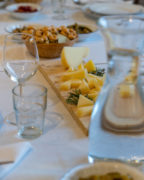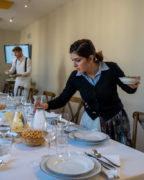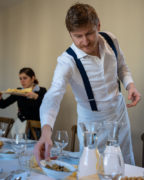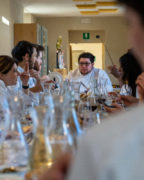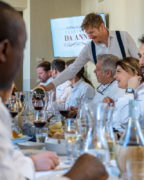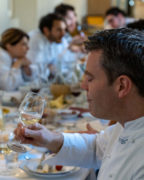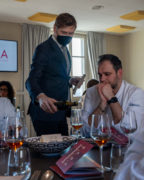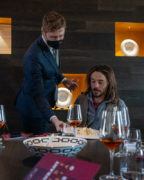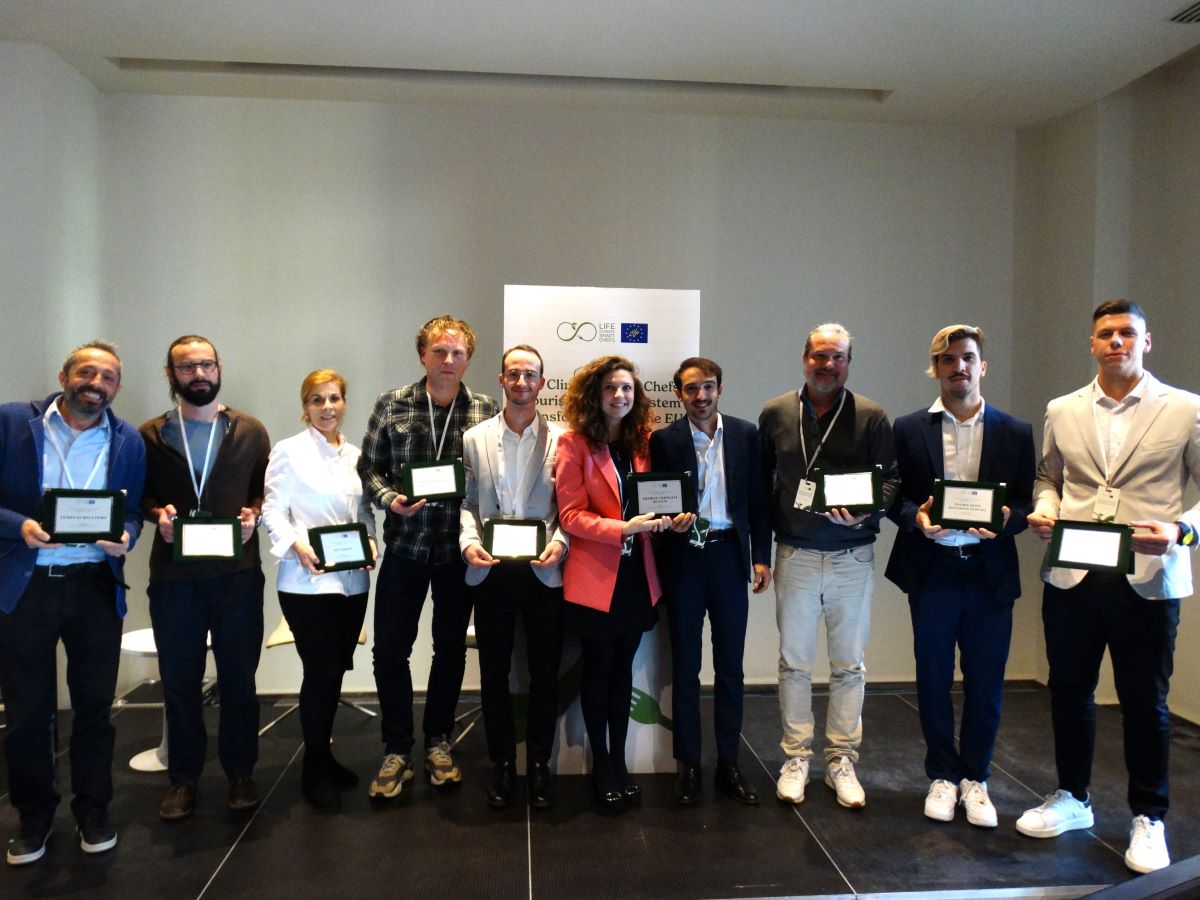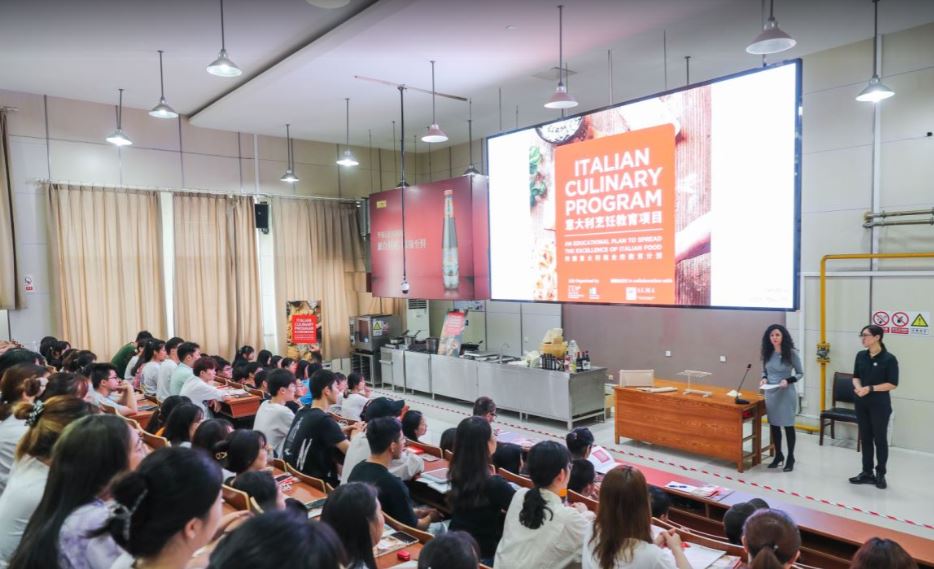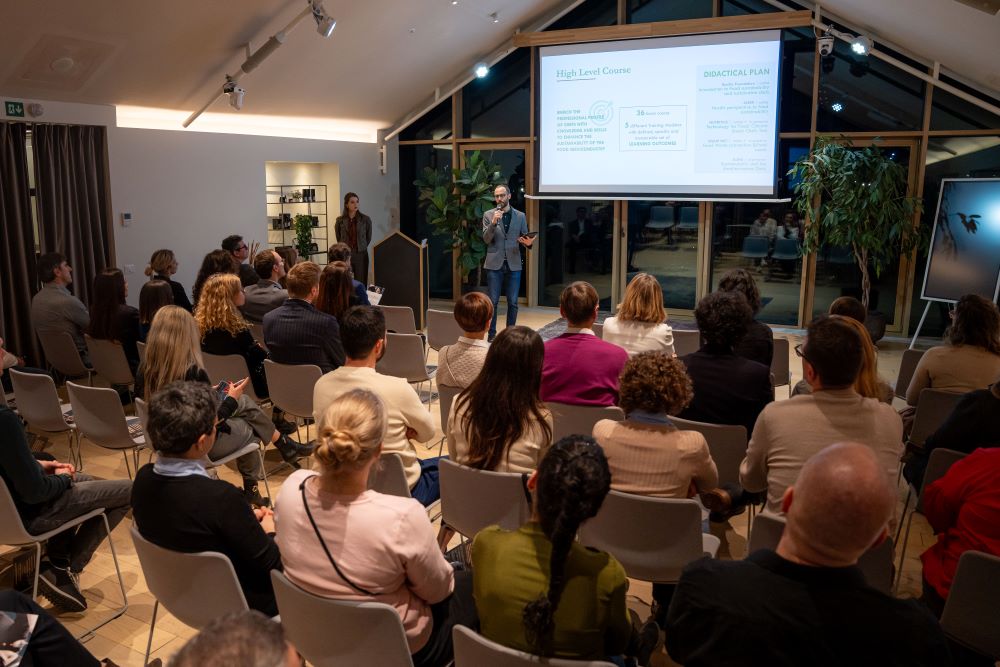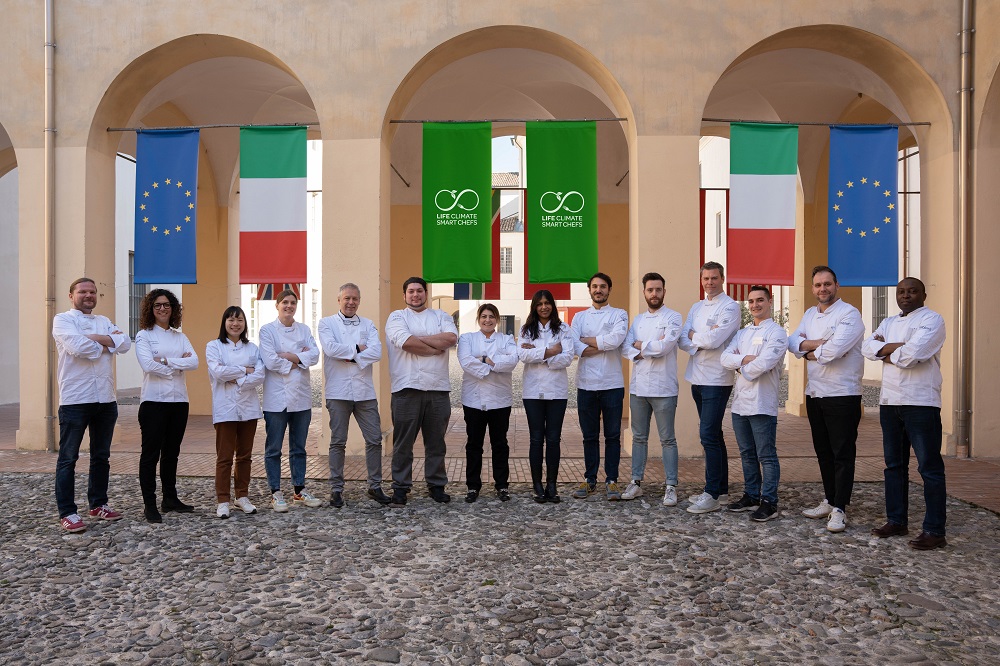
Climate Smart Chefs High Level Course: the first edition has started

The first edition of the high-level training course sponsored by the European Union as part of the LIFE Climate Smart Chefs project has just ended. This project aims at raising awareness among chefs and catering actors about their role in protecting the planet and combating climate change. Begun with a first tranche of online classes to facilitate use by the students, all of whom are working professionals, the training continued with a two-day in-presence masterclass at ALMA’s headquarters, in which more practical and technical content was developed.
In the chair were teachers from ALMA, Enaip and Nutritics, partners in the project, each in their own area of expertise.
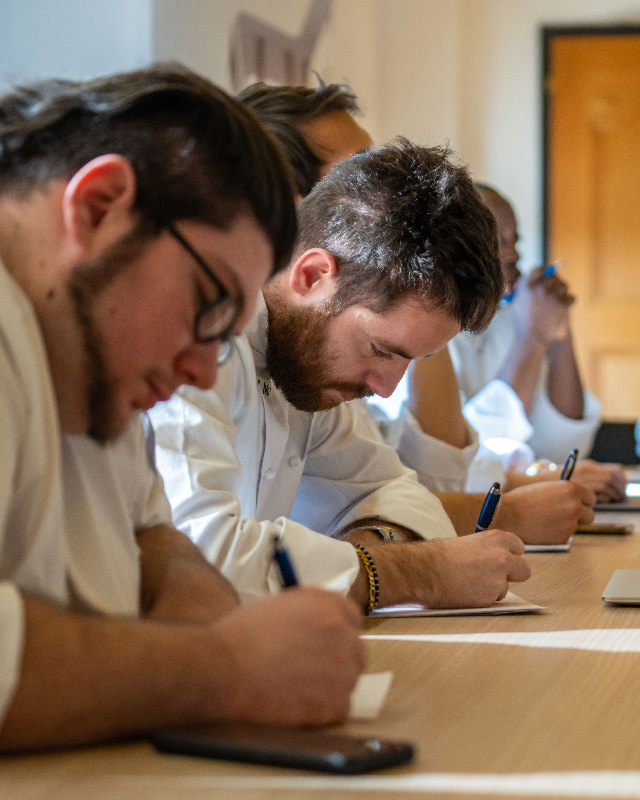
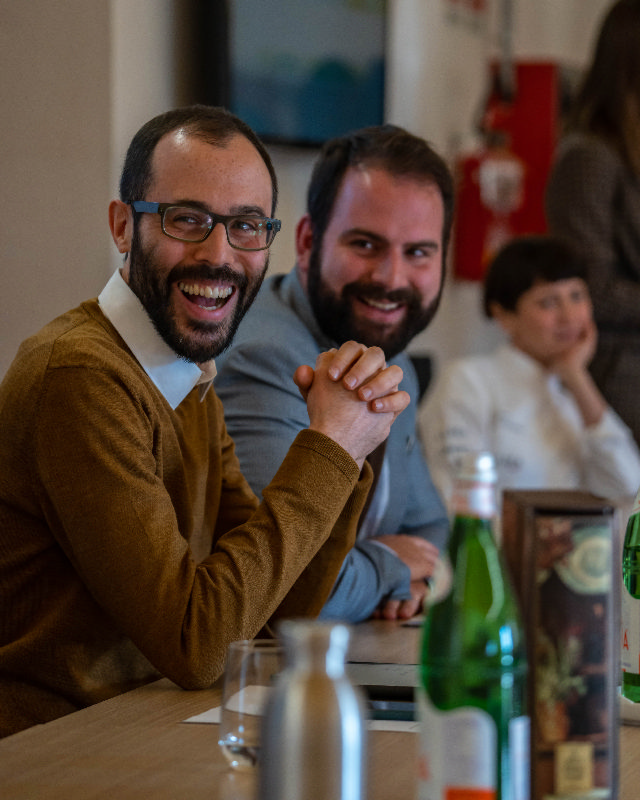
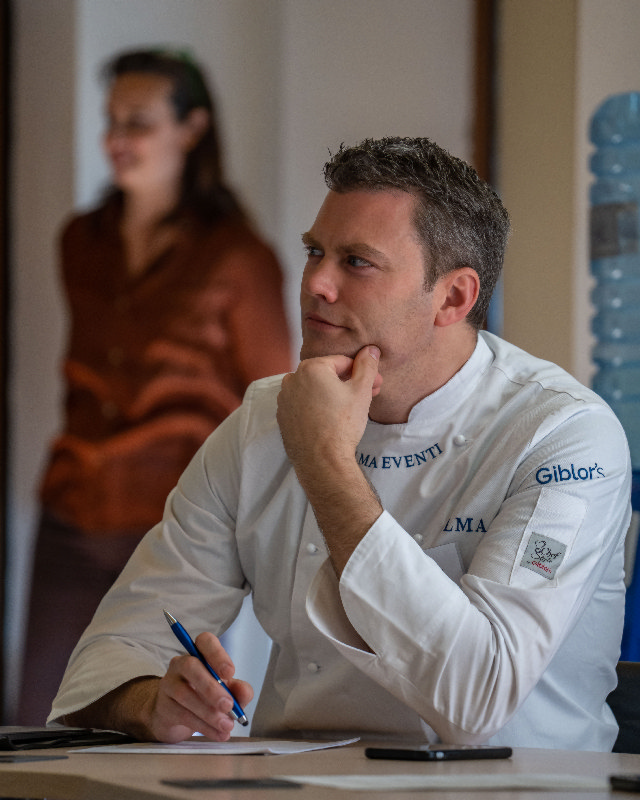
Sustainable cuisine, analyzed in different historical periods, was the focus of the lecture given by ALMA teachers Fabio Amadei and Laila Ciocca, gastronomic culture and sustainability area, Francesca Giopp, nutrition, and Chef Laura Torresin. After an introduction on the Mediterranean diet and the farm-to-fork concept, the students were taken on a real journey through time in 3 different epochs to analyze the sustainability of the same menu in 1968 and 2020 and how this could be in 2030, the year by which most of the world’s commitments against climate change will have to be realized. For the occasion, ALMA’s Mater Restaurant, the heart of the lessons in the Restaurant, Bar & Sommellerie courses, was set up to reproduce the characteristic trattoria of the late 1960s, with convivial table and hosts serving and, in the other room, the elegance and intimate atmosphere of the modern fine dining restaurant. To sum up, a groupwork in which the students were asked to reflect on the degree of sustainability of individual recipes in the two eras and how to achieve one that reduces any waste and carbon/water footprint.
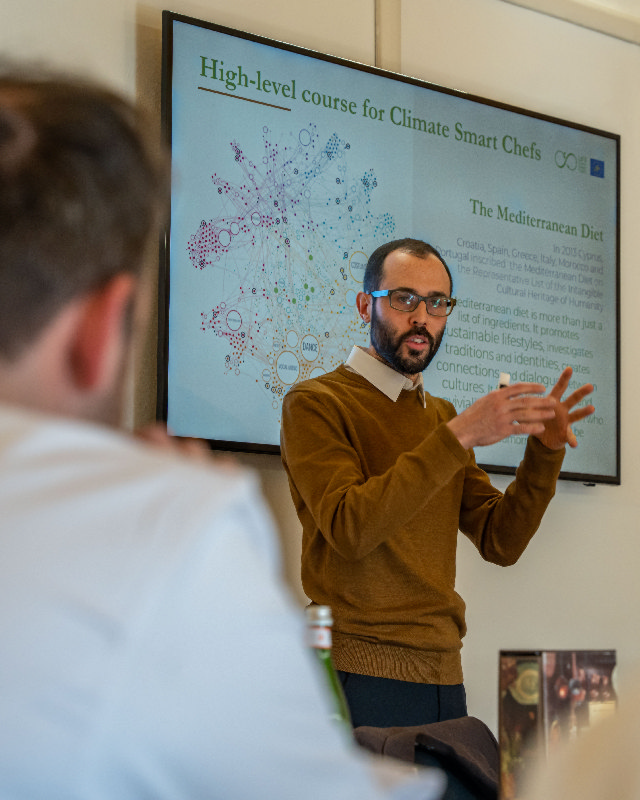
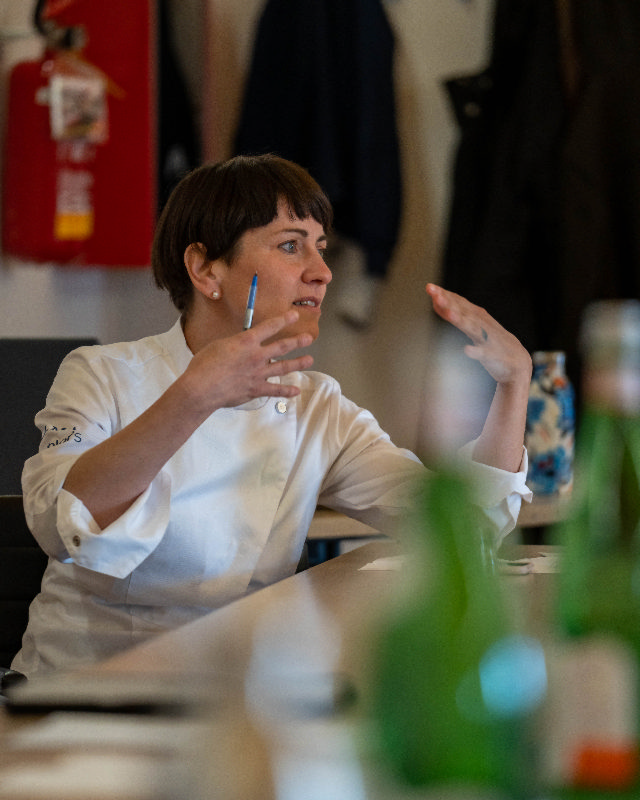
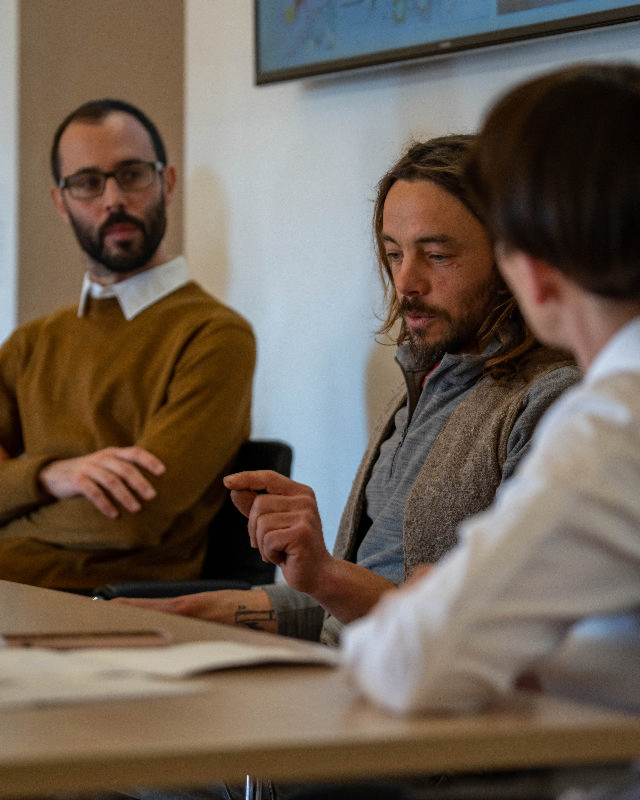
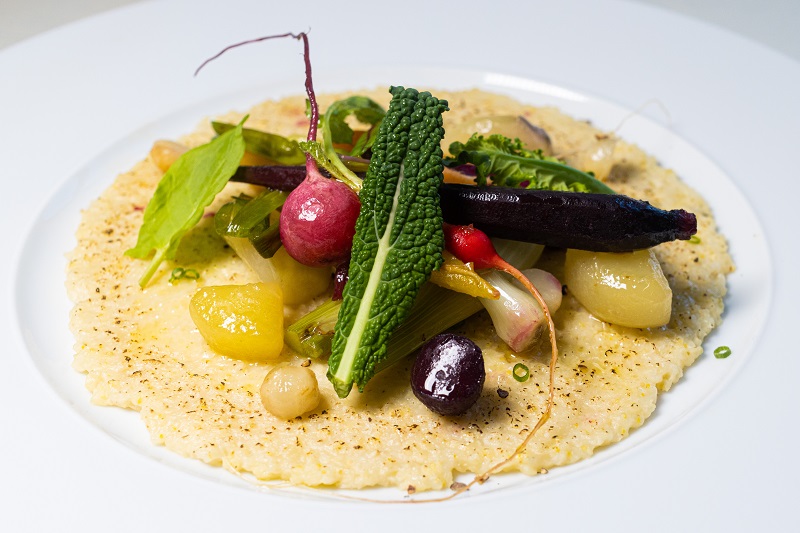
Watch the reel
Nutritics illustrated features and functionality of the app developed by its engineers to accurately calculate the environmental impact of recipes based on ingredients and raw materials and cooking techniques and tools, so that chefs can implement concrete daily practices and sustainability policies through their menus. Thanks to a demo by the teachers and a subsequent individual simulation, course students were able to appreciate the simplicity of using this tool and, conversely, the complexity of the calculations behind it, understanding firsthand how to incorporate it into daily operations.
Enaip completed the trainings with modules devoted to food waste, how it is generated, what effects it has and how it can be avoided in restaurant practice. Between pure mathematical calculations and lateral thoughts on the social responsibility that food waste carries, the chefs touched on one of the most critical points of the project in its entirety, namely how it is possible for 30 percent of the world’s food to be wasted and how this is no longer tolerable.
Also present during the two days was Fondazione Barilla, the lead partner of Climate Smart Chefs, which followed the events and collected impressions and feedback from the participants, with the aim of improving content and structure more and more and guaranteeing a training product of the highest level. 7 are the remaining editions of this course, which is supported by the European Union within the LIFE container and therefore delivered completely free of charge for participants.

